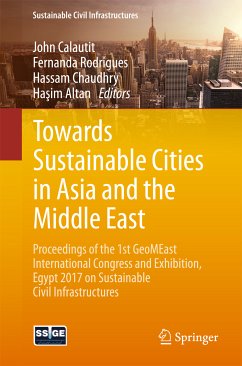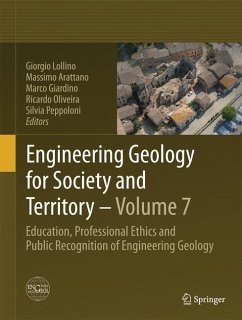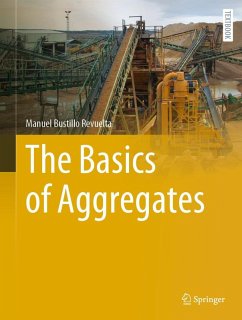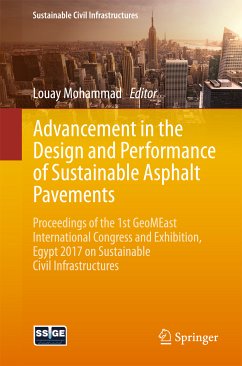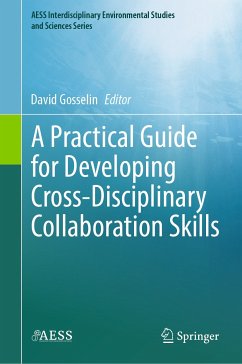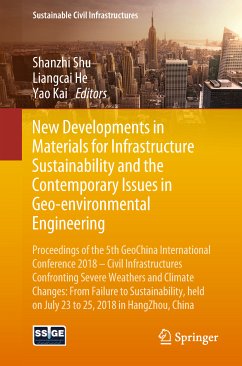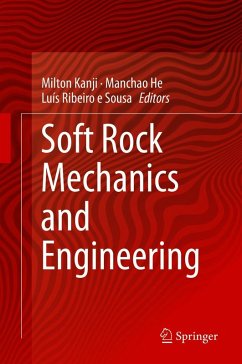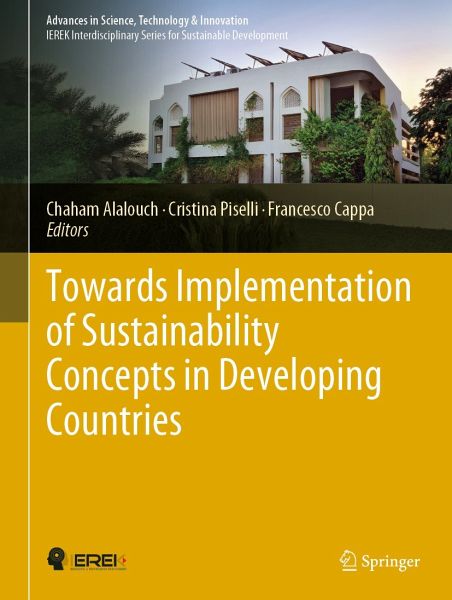
Towards Implementation of Sustainability Concepts in Developing Countries (eBook, PDF)

PAYBACK Punkte
64 °P sammeln!
This book focuses on sustainability concepts in architecture and urban design, environmental issues, and natural resources. Today it has become essential to reduce carbon emissions, protect habitats, and preserve the delicate ecosystems of our planet. Accordingly, sustainable development has to be improved by decreasing the consumption of non-renewable resources, in order to help nature replenish itself. Further, it highlights the efforts that have been made by architects, environmentalists, engineers, students, planners and everyone in between in order to improve sustainability in various dev...
This book focuses on sustainability concepts in architecture and urban design, environmental issues, and natural resources. Today it has become essential to reduce carbon emissions, protect habitats, and preserve the delicate ecosystems of our planet. Accordingly, sustainable development has to be improved by decreasing the consumption of non-renewable resources, in order to help nature replenish itself.
Further, it highlights the efforts that have been made by architects, environmentalists, engineers, students, planners and everyone in between in order to improve sustainability in various developing communities and countries.
Dieser Download kann aus rechtlichen Gründen nur mit Rechnungsadresse in A, B, BG, CY, CZ, D, DK, EW, E, FIN, F, GR, HR, H, IRL, I, LT, L, LR, M, NL, PL, P, R, S, SLO, SK ausgeliefert werden.
Alle Preise in Euro und inkl. der gesetzl. MwSt. | Innerhalb Deutschlands liefern wir preisgebundene Bücher versandkostenfrei. Weitere Informationen: bitte hier klicken
Support
Bitte wähle dein Anliegen aus:
Rechnungen
Bestellstatus
Retourenschein
Storno




